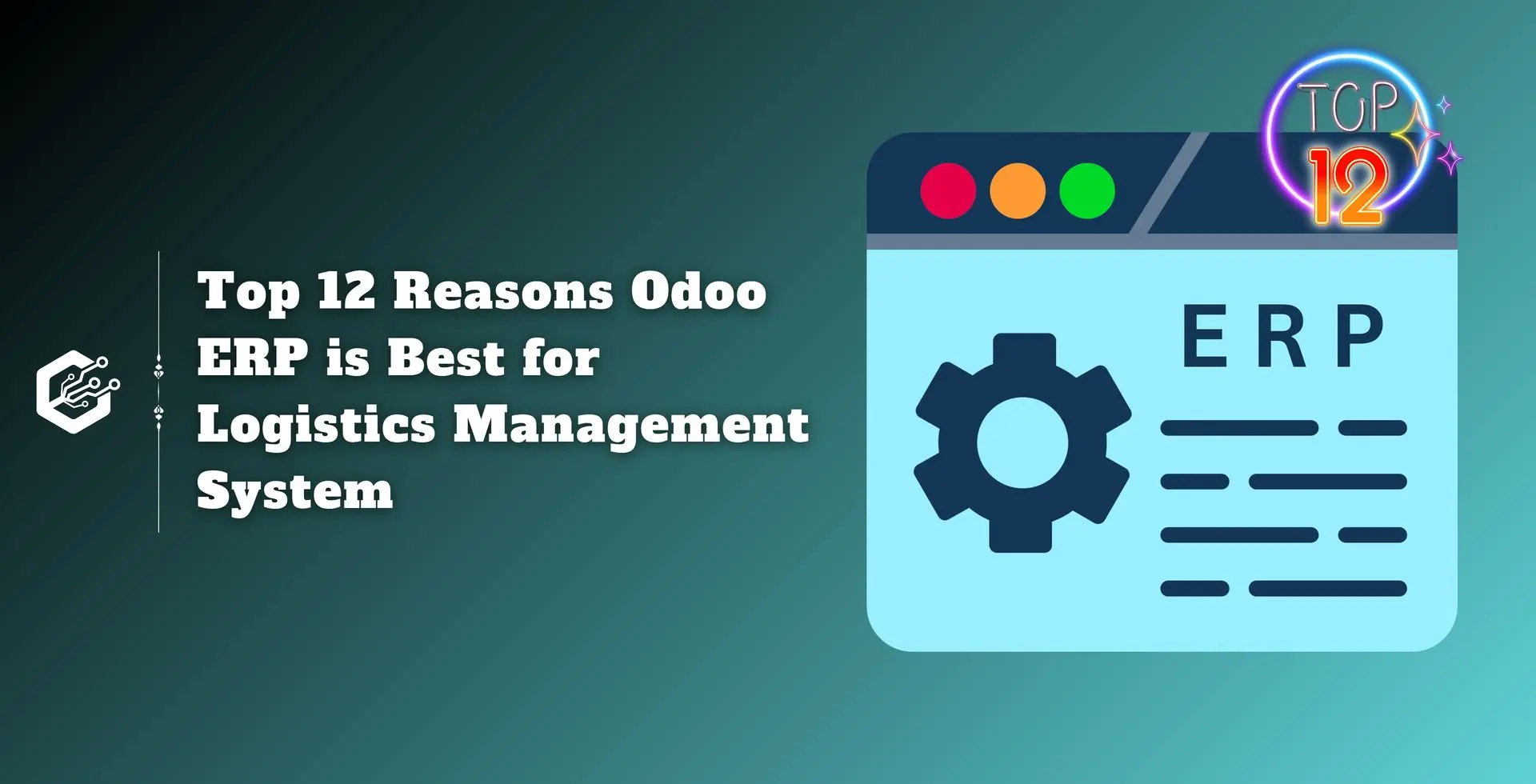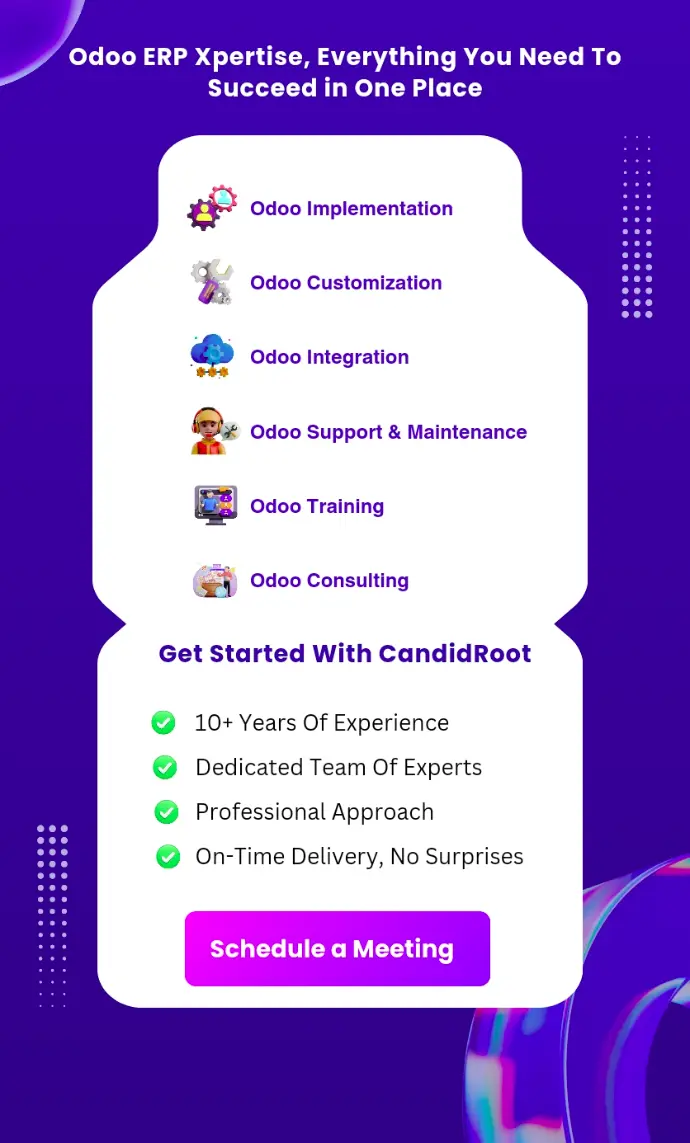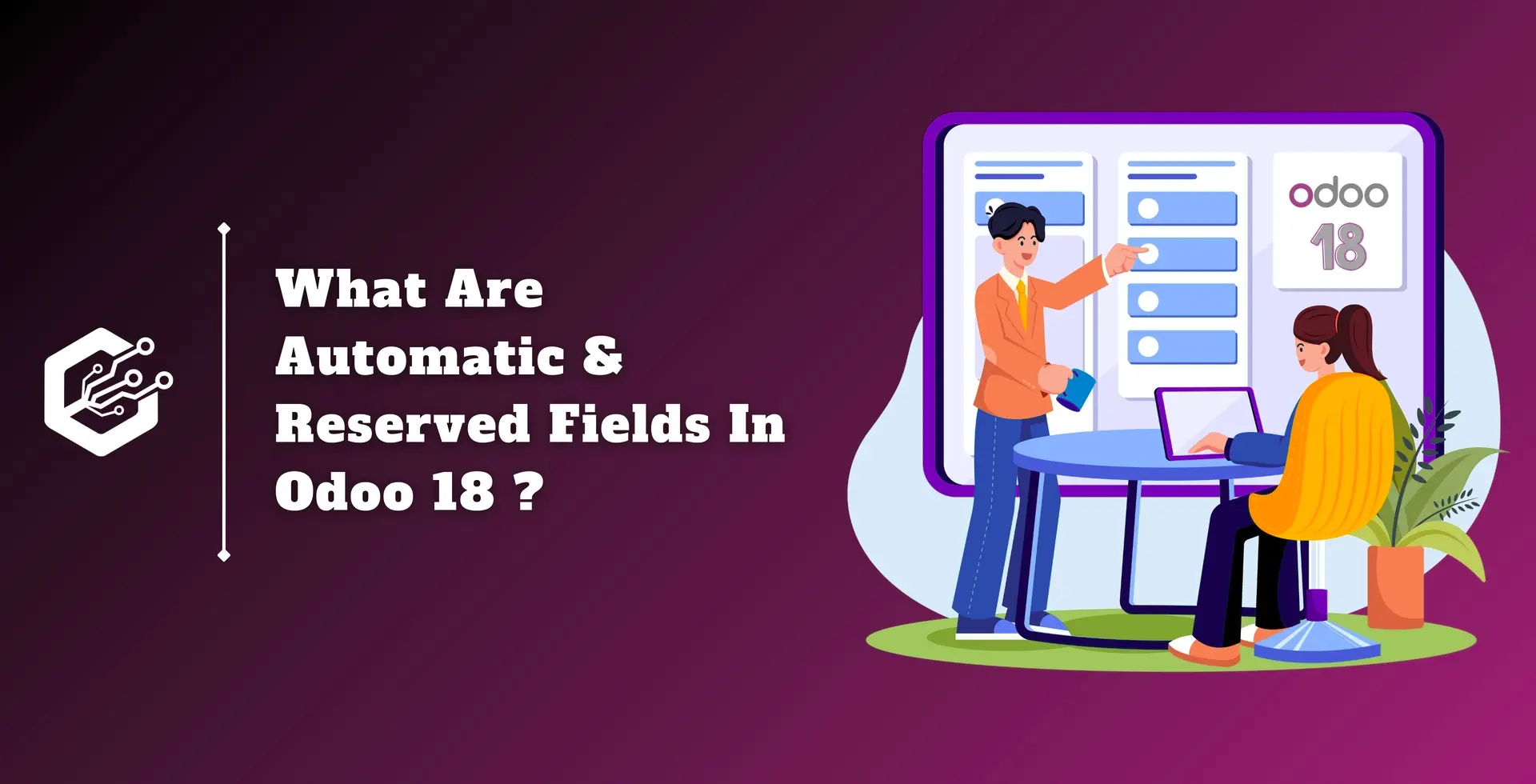Unprecedented growth is witnessed in the global logistics market, supplemented by the rise of e-commerce and the effective demand for the supply chain. On the worldwide scale, recent estimates project that the global logistics market will reach a total revenue of around $5.95 trillion in 2030, growing at a compound annual growth rate (CAGR) of 7.2% between 2025 and 2030.
In this fast-paced world, companies need good logistics management systems to optimize their operations and stay ahead in the market. This is where Odoo ERP for logistics enters as a great solution for you as the best logistics ERP. You will get a number of integrated applications in the Odoo software that cover every aspect of logistics and supply chain management.
What is a Logistics Management System?
A Logistics Management System (LMS) is a software solution designed to facilitate the processes of the movement and storage of goods, services, and related information from point of origin to point of consumption within the supply chain. Odoo ERP for Logistics incorporates an organized ensemble of so many processes associated with transportation, inventory, warehouse, and order fulfilment that collectively lead to timely, cost-effective delivery.
Logistics is an important aspect of supply chains that is responsible for managing a complex process of movement of goods from suppliers to customers. An efficient LMS reduces errors and creates visibility into every step. It's a must-have for businesses that handle transportation and distribution.
Essential Functions of a Logistics Management System
A proper LMS implementation improves operational efficiency, reduces costs, and ensures timely and accurate deliveries, contributing to customer satisfaction. The core functions include:
- Transport Management: Optimal route planning, fleet tracking, fuel consumption monitoring
- Inventory Management: Monitoring stock levels, automating restocking, avoiding overstocking or shortages
- Warehouse Operations: Space optimization, order picking efficiency, automated inventory tracking
- Order Management: Accurate and rapid order processing, smooth invoicing and billing
- Shipment Tracking: Up-to-date shipment status, estimated delivery time
A modern LMS, like Odoo ERP for logistics, cohesively integrates all these functions into a singular ecosystem for a good transition of information and automation.
Benefits of Odoo ERP for Logistics Management System
The implementation of Odoo ERP for logistics helps businesses gain several benefits, making it a mighty solution to manage logistics and the supply chain efficiently.
The following list represents some of the common structural characteristics of Supply Chain:
1. Centralized Control of Supply Chain Operations
An all-in-one platform to manage all logistics by connecting procurement, inventory, warehousing, and transportation under one roof, Odoo ERP is designed for that. It enables more effective coordination, with fewer human errors, and provides a consolidated real-time view of the supply chain, allowing for appropriate decision-making.
Having all logistics operations under one system eliminates the risk of miscommunication between departments and guarantees a smooth execution flow. Centralized control can also assist in tracking some key performance metrics, allowing businesses to identify inefficiencies and optimize processes. With all logistics functions under one system, the Odoo ERP converts the complex task of supply chain management into a simplified and transparent one.
2. Real-Time Inventory and Warehouse Management
In logistics, effective inventory management is important. Odoo’s inventory module tracks stock levels in real-time across multiple warehouses, preventing stockout or overstocking issues. You can set up automated reordering rules to refill stock when it reaches below-specified thresholds, ensuring proper inventory levels at all times.
Logistics managers with real-time data can make proactive decisions about stock allocation and fulfillment. In addition to offers of matching inventory by reducing waste, businesses can use inventory software to ensure that quickly expiring or time-sensitive inventory is managed to avoid spoilage. In summary, Odoo’s real-time inventory tracking is a robust strategic tool for precise and responsive stock management.
3. Automation of Key Processes
Thus, Odoo ERP automates redundant tasks like order processing, invoicing, and shipment scheduling. Such automation minimizes data entry errors, streamlines processes, and frees employees to concentrate on higher-value tasks, improving productivity.
As it eliminates manual interventions, businesses can reduce operational delays and ensure more accurate orders. Automating tax compliance ensures precise tax calculations, documentation, and reporting. Automated systems enable logistics operations to leverage efficient, error-free processes instead of traditional, slow-moving manual methodologies.
4. Improved Order Fulfillment and Shipment Tracking
Besides Order Fulfillment, Odoo ERP helps businesses provide customers with real-time shipment tracking information. Moreover, it allows for integration with multiple shipping carriers, ensuring automated tracking updates for greater transparency and customer satisfaction.
Today, customers want to see their order details in real time, and Odoo ERP ensures they get proper delivery status information. Better order delivery results in higher customer retention and fewer disputes over lost or late packages. Now, real-time shipment tracking has become a big advantage for creating customer trust and loyalty.
5. Transportation Management
The transportation management components in Odoo enable businesses to plan and optimize delivery routes, monitor speed performance, and track fuel usage. As a result, it leads to lower transportation costs and timely deliveries, which are important in maintaining customer trust.
Businesses can greatly reduce the logistical constraints associated with delivery by identifying the most efficient routes and optimizing vehicle usage. The system also tracks maintenance schedules, which reduces vehicle downtime. From a logistical issue, transportation management in Odoo ERP transforms into a strategic competitive advantage.
6. Cost Reduction and Efficiency
Odoo ERP assists firms in decreasing operational expenditures by automating operations and maximizing resource use. Effective inventory management reduces holding costs, and efficient transportation planning decreases fuel and maintenance costs.
Businesses can reinvest cost savings into growth and increase service quality. It helps in calculating the spending patterns to improve financial planning and tap into more chances for arranging funds for your business. Odoo ERP turns cost management from a reactive to a proactive strategic function.
Related Post: How Much Does It Cost to Develop an Odoo ERP
7. Better Forecasting and Demand Planning
The utilization of data analytics to get accurate demand forecasting allows enterprises to plan their inventory and resources accordingly. This will enable them to avoid stockouts or excess inventory, matching supply with expected demand.
Forecasts are used to make sure products are available, reducing last-minute delays in procurement and improving service. Predictive analytics also assist businesses in planning seasonal stock adjustments and negotiating with suppliers. Demand planning becomes an exact strategy of data-based business optimization.
8. Integration with Other Odoo Modules
Due to Odoo's modular architecture, it can be easily combined with other business applications like accounting, customer relationship management (CRM), and e-commerce platforms. This interconnectivity allows for a seamless flow of information through different departments, breaking down data barriers and improving operational efficiency.
When all these systems work together, businesses can monitor their logistics expenses, manage customer interactions, and simplify financial reporting. This integration can also improve business intelligence, enabling management to make well-informed and data-backed decisions. Integrating modules turns Odoo ERP into a complete business ecosystem rather than a standalone tool.
9. Scalability for Business Growth
As businesses grow, logistics management gets complicated. Odoo ERP is highly scalable, accommodating growth by allowing the addition of new modules and functionalities as needed. This allows the system to adapt to the business, promoting long-term success.
Enterprises can enhance their logistics infrastructure without the need for a complete system renovation. All this whilst Odoo ERP adapts to market changes readily, keeping organizations flexible and competitive. The scalability shines through as a strategic enabler of continuous business transformation.
10. Customer Satisfaction
Logistics functions affect customer satisfaction. Odoo ERP helps businesses meet and exceed customer expectations through timely deliveries, accurate order processing, and transparent communication, leading to loyal customers and repeat business.
Happy customers are likely to refer the business and add to brand equity. Streamlined logistics also enable enterprises to handle demand peaks while ensuring seamless service. Thus, achieving customer satisfaction becomes a quantifiable and attainable result of strategic logistics management.
11. Compliance and Regulatory Management
It cannot be easy to navigate the logistics regulations landscape. By automating documentation and processes related to compliance, Odoo ERP helps businesses align with industry standards and legal requirements, reducing the risk of penalties and enhancing operational integrity.
With built-in compliance tracking, businesses can easily generate audit reports and tax filings per requirements. Also, the system helps to keep you updated with constantly changing regulations to avoid legal troubles. From a high-risk challenge, compliance management becomes a controlled, systematic process.
12. Sustainable Logistics Practices
Logistics sustainability is currently gaining traction. One of the proactive measures of Odoo ERP is to provide companies with real-time tools to promote sustainable logistics practices, such as optimizing delivery routes to reduce fuel consumption and carbon dioxide emissions, promoting energy-efficient warehouse operations, and monitoring its environmental impact to meet sustainability goals.
Fewer unnecessary shipments also translate to a lower environmental impact for companies due to reduced transportation and warehouse energy consumption. Good for the planet while working for good brand impression and customer commitment. This is where sustainability evolves into a strategic imperative, seamlessly integrated into every aspect of logistics operations.
To Conclude
In the dynamic and fast-paced world of logistics, having a well-integrated management system is crucial. Those mentioned above are a few main points for which the Odoo ERP for logistics is an end-to-end solution!
Through centralization of operations, automation of key processes, and real-time analytics for insights, Odoo ERP can streamline processes, reduce costs, improve customer satisfaction, and add value to the supply chain. Its scalability and integration capabilities enable your logistics operations to evolve alongside your business.
To sum it up, adopting Odoo ERP helps your logistics operations maintain streamlined processes, efficiency, and dynamic solutions that keep you ahead of the game.
Related Post:
- Odoo Warehouse Management System - Features, Benefits
- How Much Does An Odoo Implementation Cost
- How Odoo Service Management Streamlines Business Operations
- How Odoo Asset Management Optimizes Business Efficiency
- Odoo Property Management System - Streamline Your Property Management Effortlessly
- Why is Odoo the Best ERP Solution for the Construction Industry


